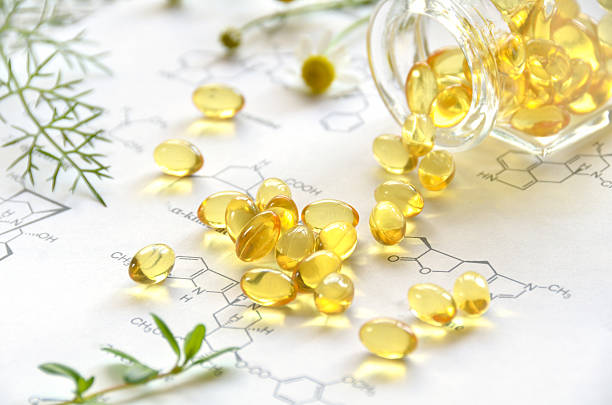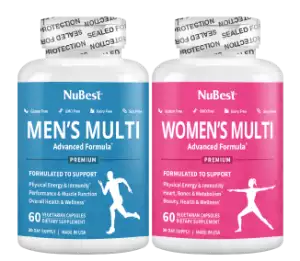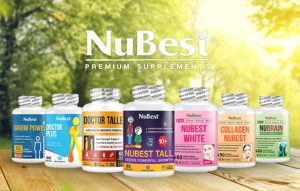Table of Contents
ToggleIn recent times, the popularity of organic supplements has surged as people actively prioritize their health and well-being. These supplements, crafted from natural ingredients, are renowned for their perceived array of health benefits. This article aims to investigate the scientific principles underpinning organic supplements and shed light on how they effectively enhance our overall health. By containing vital compounds like vitamins, minerals, and phytonutrients, organic supplements play a crucial role in supporting our body’s optimal functioning.
What are organic supplements?

Organic supplements are dietary supplements that are made from all-natural, plant-based ingredients. They are designed to provide essential nutrients, vitamins, and minerals that the body needs to function properly.
Examples of Organic Supplements
Many types of organic supplements are available, including multivitamins made from whole foods, herbal supplements like turmeric, echinacea, and garlic, as well as superfood powders made from ingredients like chlorella, spirulina, and wheatgrass.
Difference between Organic and Non-Organic Supplements
The main difference between organic and non-organic supplements is the source of their ingredients. Non-organic supplements may contain artificial colors, flavors, and preservatives, as well as synthetic nutrients that are made in a laboratory. Organic supplements are made from plant-based ingredients that are free from synthetic additives and pesticides.
Benefits of Organic Supplements
Organic supplements offer many benefits over non-organic supplements, including a higher concentration of natural nutrients, better absorption by the body, and a reduced risk of harmful side effects. Additionally, by choosing organic supplements, you can support sustainable and eco-friendly farming practices.
Choosing the Right Organic Supplement
When choosing an organic supplement, it is important to look for products that are certified organic by reputable organizations, such as the USDA or the Non-GMO Project. You should also consult with your healthcare provider to determine which supplements are best for your individual needs.
Why choose organic supplements?
Organic supplements are becoming increasingly popular among individuals looking to improve their overall health and well-being. Here are some reasons why you should consider choosing organic supplements:
Free from Harmful Chemicals
One of the primary benefits of using organic supplements is that they are free from harmful toxins and chemicals that can be found in synthetic supplements. This means that they are a safer option for those who are concerned about the potential risks associated with consuming synthetic supplements.
More Effective
Studies have shown that organic supplements contain higher levels of vitamins, minerals, and other nutrients than their synthetic counterparts. This makes them a more effective option for those looking to improve their health and well-being.
Environmentally Friendly
The use of synthetic fertilizers and pesticides can hurt the environment by contaminating water sources and harming wildlife. Organic farming practices, on the other hand, promote soil health and biodiversity, which can help to protect the environment.
Studies Supporting the Effectiveness of Organic Supplements
Numerous studies have been conducted on the effectiveness of organic supplements. Here are some examples:
Organic Spinach
A study conducted by the University of California found that organic spinach contains 27% more vitamin C and 14% more iron than conventionally grown spinach.
Organic Strawberries
A study published in the Journal of Agricultural and Food Chemistry found that organic strawberries contained higher levels of antioxidants than conventionally grown strawberries.
Comparison with Synthetic Supplements
While synthetic supplements may offer some benefits, organic supplements are generally considered to be a safer and more effective option. Here are some reasons why:
- Synthetic supplements may contain harmful chemicals and toxins that can be harmful to your health.
- Organic supplements contain higher levels of vitamins, minerals, and other nutrients than synthetic supplements.
- Organic farming practices promote soil health and biodiversity, which can help to protect the environment.
How are organic supplements made?

How Are Organic Supplements Made?
Organic supplements are made using organic farming practices, which involve growing crops without the use of synthetic pesticides, herbicides, or fertilizers. This ensures that the crops are free from harmful chemicals, making them a safe and effective source of nutrients.
The Process of Organic Farming
Organic farming involves using natural methods to maintain soil health and control pests. This includes crop rotation, composting, and the use of beneficial insects. By using these methods, organic farmers can produce high-quality crops without relying on harmful chemicals.
Extraction and Production of Organic Supplements
Once the organic crops are harvested, they must be extracted and turned into supplements. This can involve a variety of processes depending on the type of supplement being produced. For example, organic crops may be ground into a fine powder or pressed to extract liquid nutrients.
Quality Control Measures for Organic Supplements
Quality control is crucial to ensuring that organic supplements are safe and effective. This includes testing the raw materials for contaminants such as heavy metals and pesticides, as well as ensuring that the production process meets strict quality standards. By following these measures, manufacturers can ensure that their supplements are of the highest possible quality.
Common supplements and their benefits
Supplements can provide numerous health benefits. When choosing organic supplements, it is important to do your research and choose high-quality products from reputable brands. Adding organic supplements to your daily routine can help to improve your overall health and well-being.
Organic Supplements
Organic supplements have become increasingly popular due to their numerous health benefits. In this article, we will explore the benefits of three common types of organic supplements: organic multivitamins and minerals, organic herbal supplements, and organic supplements for specific health conditions.
Organic Multivitamins and Minerals
Organic multivitamins and minerals provide a blend of essential vitamins and minerals that our body needs to function optimally. They help to improve overall health, boost immunity, and maintain healthy energy levels. Organic multivitamins and minerals are also rich in antioxidants, which can protect the body from free radical damage and reduce the risk of chronic diseases.
Organic Herbal Supplements
Plants produce organic herbal supplements known for their healing properties. Some of the commonly used organic herbal supplements include turmeric, echinacea, and ginseng.
People know turmeric for its anti-inflammatory properties, while they often use echinacea to boost immunity. Researchers have shown that Ginseng reduces stress levels and improves cognitive function.
Organic herbal supplements can help to improve overall health and well-being, while also providing specific health benefits.
Supplements for Specific Health Conditions
Organic supplement manufacturers formulate their products to address specific deficiencies or health issues related to particular health conditions. Some people may take organic supplements to improve their joint health or to support their digestive system. Others may take supplements to reduce their cholesterol levels or to improve their cardiovascular health. Organic supplements for specific health conditions can be a helpful addition to a healthy lifestyle and can provide targeted support for those who need them.
Potential risks and limitations of organic supplements

While organic supplements may offer many potential health benefits, it is important to be aware of their potential risks and limitations.
Contamination and Quality Issues
One of the primary concerns with organic supplements is the potential for contamination and quality issues.
Organic supplements made from plant-based materials pose a risk of exposure to contaminants, such as pesticides, heavy metals, or bacteria. Therefore, it is crucial to choose supplements from reputable manufacturers who follow good manufacturing practices to ensure quality and safety.
Interactions with Prescription Medications
Another potential risk associated with organic supplements is their interaction with prescription medications. Some supplements may interfere with the absorption, metabolism, or excretion of prescription drugs, which can lead to adverse health effects. It is important to consult with a healthcare professional before taking any organic supplements, especially if you are already taking prescription medications.
Lack of Regulation and Standardization in the Industry
The lack of regulation and standardization in the organic supplement industry is another limitation. Unlike prescription drugs, organic supplements are not subject to rigorous testing and approval by regulatory agencies. This can lead to a lack of consistency in product quality, dosage, and purity across different brands and manufacturers. It is important to do thorough research and choose organic supplements from reputable sources to ensure their safety and efficacy.














